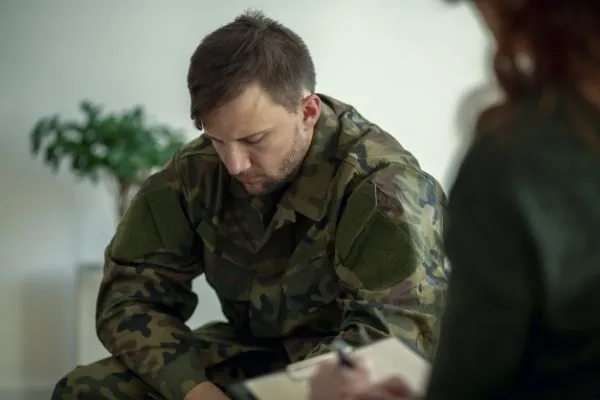Looking for Expansion of Veterans’ Treatment Courts in New York

The men and women who honorably serve our country are true heroes. However, sometimes, these heroes return home changed people. The stress from the job, along with the difficulty of adjusting to civilian life, can have a serious impact on a veteran’s well-being. In some cases, veterans come home with conditions like PTSD and substance abuse issues. A lack of support can place some of these veterans on the wrong side of the law.
Veterans’ Treatment Courts
Similar to drug courts and mental health courts, Veterans’ Treatment Courts seek to provide a better option for veterans who have been charged with a crime. The goal of these courts is to help veterans in trouble with the law regain stability, mental health, and sobriety. The courts are a way of diverting veterans from the typical criminal justice system and offer them assistance with the factors that may have led to their crime. Veterans are linked to community-based services to assist with addiction and mental health issues. They are also given access to agencies that specialize in veterans’ affairs.
In New York, Veterans’ Treatment Courts take a team approach to address the needs of the veterans. Mental health providers, addiction counselors, veteran’s affairs agencies, and peer mentors all work together to assist the veterans. Peer mentors are a critical part of the team approach. They are individuals who have military service and work toward helping fellow veterans in the criminal justice system. Veterans’ Treatment Courts have been very successful in assisting veterans and preventing recidivism and future involvement with the criminal justice system.
Expansion
There are currently 33 Veterans’ Treatment Courts throughout the state of New York. These courts have been very successful, but more work needs to be done. There are currently 37 counties in New York that do not have a Veterans’ Treatment Court. Some counties lack the resources to support these courts. New York is now looking to change the law to allow criminal cases involving veterans to be transferred to a Veterans’ Treatment Court in an adjacent county. This could go a long way to helping even more veterans get their lives back on track.
If you or a loved one has a mental disability and has been arrested or convicted of a crime, you need an experienced criminal defense attorney on your side. Elizabeth Kelley specializes in representing individuals with mental disabilities. To schedule a consultation call (509) 991-7058.


